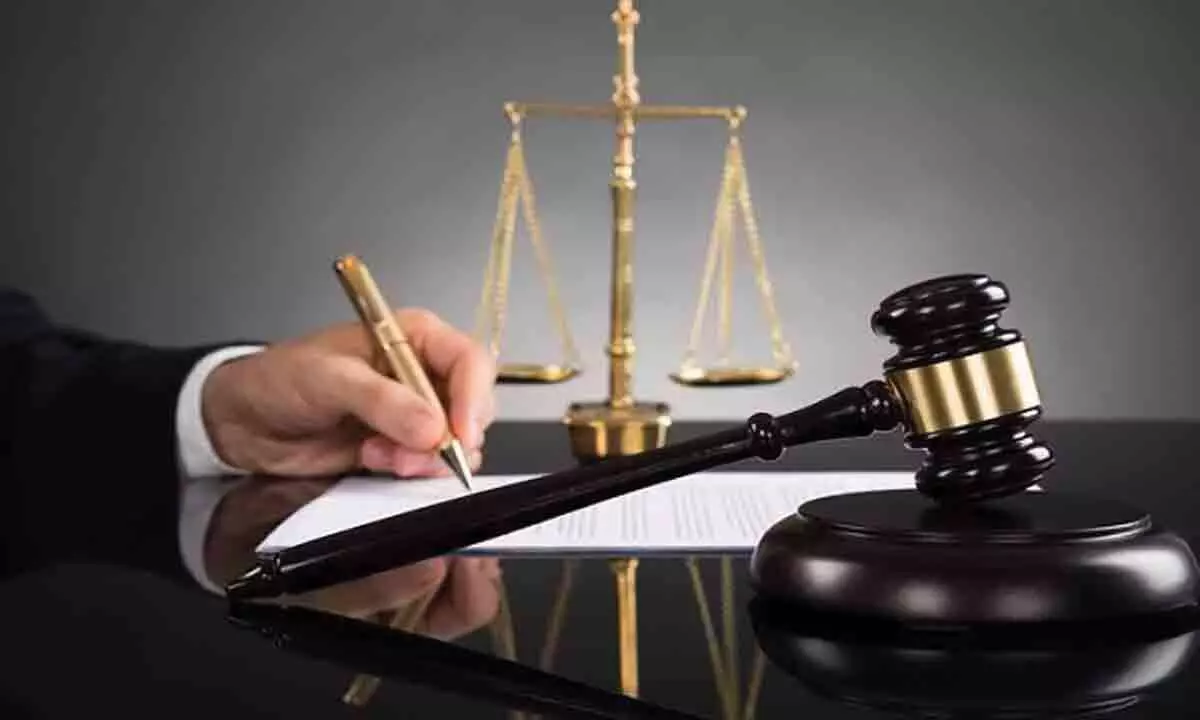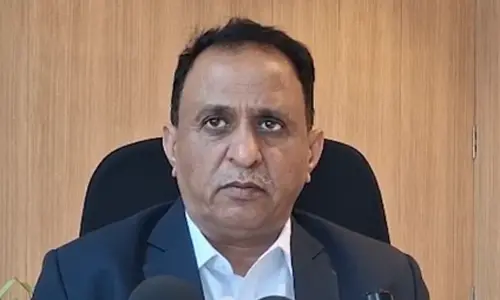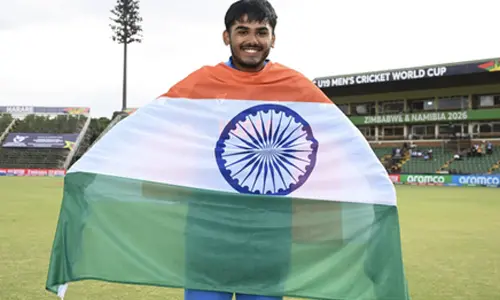Legal Circles 03-12-2023

LEGAL CIRCLES
· NEED TO MAKE ELECTIONS TRULY REPRESENTATIVE !
Two major events marked November and December this year. In November the nation celebrated the Constitution Day on date 26. In the current month the Advocates Day is being observed on date 3. Unfortunately, except the legal fraternity and judiciary nobody seems to have participated in these very important events. Seen in this context, elections in five States too, appear to be a routine formality. With the majority of voters being uninformed or ill-informed the elections generally become a game of money and muscle power between the contesting parties.
It is not that making the whole election process a healthy and truly representative exercise is not possible, but there seems to be no desire on the part of winners and losers to do so. The reason is quite obvious. It is the lurking fear of losing grip on the poor, mostly uneducated and politically indifferent electorate. Otherwise everybody knows that large constituencies with lakhs of voters are nigh unimaginable to be called ' representative' constituencies ! Neither candidates nor voters are expected even to know each other.
The candidates for peoples' representation are expected to be known to the voters thoroughly. With unviable constituencies this is simply not possible. Further, even if a candidate wants to reach out to his voters through personal approach or print or electronic media, it will cost him a bomb. Several lakhs, and possibly several crores of rupees will be needed to reach out to voters additionally by way of hordings, banners, pamphlets, rallies and public meetings. With the Election Commission putting monetary restrictions the hands of a candidate would be tied. However, the candidates put up by the political parties will be able to sail through because their respective parties will organise the necessary propaganda for them, but for the independent candidates it will be just impossible to compete with the party sponsored candidates. In other words, there is no level playing field which is nothing but discrimination between the contesting candidates. This clearly violates the Constitution which forbids discrimination.
But the mute question is whether a person who is hardly known to the voters because of large size of the constituency, can be called as the 'representative' of the people in true sense? The Constitution envisages a government of the people, for the people and by the people. Where does a candidate whose anticedents are not fully known fits in this description? That apart, where is the provision in the Constitution or any other law for the recall of an elected public representative if he fails to discharge his duties as such? Loknayak Jai Prakash Narayan and many other apolitical leaders and intellectuals have time and again advocated for devising a legal mechanism for the recall of an elected public representative. One certain way of achieving twin objectives, viz. reducing expenditure and electing a known face as public representative, is to shrink the size of a constituency and increasing the number of seats in the legislatures. True, smaller the constituency and higher the seats of elected representatives, lesser will be the expenditure on propaganda and better and meaningful will be the public representation in Assemblies and the Parliament.
· SC: CONSTITUTION BENCH TO REVIEW ‘AUTOMATIC VACATION OF STAY.’
The apex court on December 1 agreed to review its March, 2018 judgment wherein it fixed a 6-month expiry period on stay orders to expedite the trial proceedings with the exception that a court can extend this period in some cases where it feels that there would be ‘serious miscarriage of justice.’
A bench of Chief Justice DY Chandrachud, Justice J.B.Pardiwala and Justice Manoj Misra said, “When a High Court grants stay in a criminal or civil case, it can’t be automatically vacated and observed that the 2018 judgment enunciating the principle of automatic vacation of stay orders after 6-months ‘is liable to result in serious miscarriage of justice’.” The bench further said that since the earlier judgment was passed by a three-judge bench, its review will be referred to a five-judge bench.
· CALCUTTA HC QUASHES 498A CASE AGAINST HUSBAND
Citing the lack of supporting material to substantiate even a prima facie case of cruelty, the bench of Justice Shampa Dutt (Paul) quashed criminal proceedings against a husband.
In the instant case, wife had filed a complaint under Sections 498A, 406, 506 and 34 of the Indian Penal Code against her husband, mother in-law as well as sister in-law. However, the couple was granted divorce by the High Court’s order. The petitioner’s husband approached the High Court seeking to quash the criminal proceedings in the lower court.
The High Court noted that the complaint was filed 19 years after marriage, and prima facie there was insufficient evidence to substantiate the charges against the husband. Accordingly, the court allowed the petition filed by one, Suman Kumar Das and others v/s The State of West Bengal and another vide its judgment dt. November 30.
· NCDRC ORDERS AN INSURANCE COMPANY TO PAY COMPENSATION
In a recent judgment in an appeal filed by Bajaj Allianz General Insurance Co. Ltd. v/s Bhupender Gahlawat, the National Consumer Disputes Redressal Comission (NCDRC) ordered the insurance company to indemnify the complainant the loss of Rs. 17,63,265 besides interest at the rate of 9+2% and compensation of Rs.50,000 towards harassment, mental pain and agony. The commission also ordered the cost of Rs. 10,000 towards litigation charges.
The Commission concluded that the insurance company failed to prove any misrepresentation or non-disclosure of material facts by the complainant while obtaining the insurance policy.
· JHARKHAND HC DISCOURGES THE TREND OF FILING WP AGAINST POLICE FOR NOT FILING FIR
While dismissing a Writ Petition as being devoid of merits, Justice Sanjay Kumar Dwivedi of the Jharkhand High Court decried the trend of the complainants rushing to the High Court to express their grievance of police not registering the FIR, observed that there is a remedy under Section 107 of Cr.P.C which enables the complainant to approach the concerned Magistrate for the redressal of his grievance.
Referring to the Supreme Court Judgment in Sakiri Vasu v/s State of Uttar Pradesh, the Court held that since an alternative remedy is available to the petitioner, the court is not inclined to exercise its power under Article 226 of the constitution of India.
· TELANGANA OBSERVES THE CONSTITUTION DAY
Several organizations of lawyers including the Telangana High Court Advocates Association (THCAA) and the South India Advocates JAC observed the Constitution day recently. It may be noted that the Constitution of India was signed on November 26, 1949, by the members of the Constituent Assembly. It is a guiding legal document for the present and future generations. The THCAA invited the Chief Justice Alok Aradhe and other judges, Advocate-General and practicing lawyers at a function to celebrate the Constitution day. The Chief Justice exhorted the legal fraternity for a folding the avowed principle of the ‘rule of law’ and render legal services to the needy. Palle Nageswar Rao, the President of the Association, underlined the importance of abiding the Constitution in letters and spirit.
In another event organized by the South India Advocates JAC, the High Court judge C.V.Bhaskar Reddy was the Chief Guest. He elaborately dealt with the tenets of the Constitution and urged the people to have faith in the Constitutional democracy of our country. P.Nagender, President, emphasized on the need to have a bench of the Supreme Court at Hyderabad.














